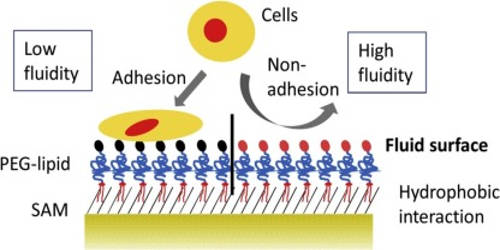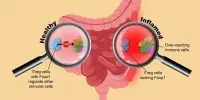Cell adhesion is the process by which cells interact and attach to neighboring cells through specialized molecules of the cell surface. It is essential in cell communication and regulation and is of fundamental importance in the development and maintenance of tissues. Cell adhesion processes play a major role in the regulation of immune functions as well as that of other vital biological processes, such as embryogenesis, cell growth, differentiation, and wound repair. This process can occur either through direct contact between cell surfaces or indirect interaction, where cells attach to surrounding extracellular matrix, a gel-like structure containing molecules released by cells into spaces between them. It is the ability of a single cell to stick to another cell or an extracellular matrix (ECM). It is involved in stimulating signals that regulate cell differentiation, cell cycle, cell migration, and cell survival.
Adhesion plays an integral role in cell communication and regulation and is of fundamental importance in the development and maintenance of tissues. Cell adhesion occurs from the interactions between cell-adhesion molecules (CAMs), transmembrane proteins located on the cell surface. It is the process by which cells form contacts with each other or with their substratum through specialized protein complexes. The essential function of cell adhesion has created tremendous interest in developing methods for measuring and studying cell adhesion properties. Cell adhesion links cells in different ways and can be involved in signal transduction for cells to detect and respond to changes in the surroundings. It is also essential in cell communication and regulation and becomes of fundamental importance in the development and maintenance of tissues. Other cellular processes regulated by cell adhesion include cell migration and tissue development in multicellular organisms.
The study of cell adhesion has been widely explored via both events for many important purposes in cellular biology, biomedical, and engineering fields. Alterations in cell adhesion can disrupt important cellular processes and lead to a variety of diseases, including cancer and arthritis. It is important to understand how cells interact and coordinate their behavior in multicellular organisms. Cell adhesion is also essential for infectious organisms, such as bacteria or viruses, to cause diseases. Intercellular adhesion can be mediated by adherens junctions, tight junctions, and desmosomes, whereas cells can interact with extracellular matrix molecules through focal adhesions. Adhesion between cells allows blood clot formations that may lead to heart failure by restricting the blood supply to the heart muscles.
















